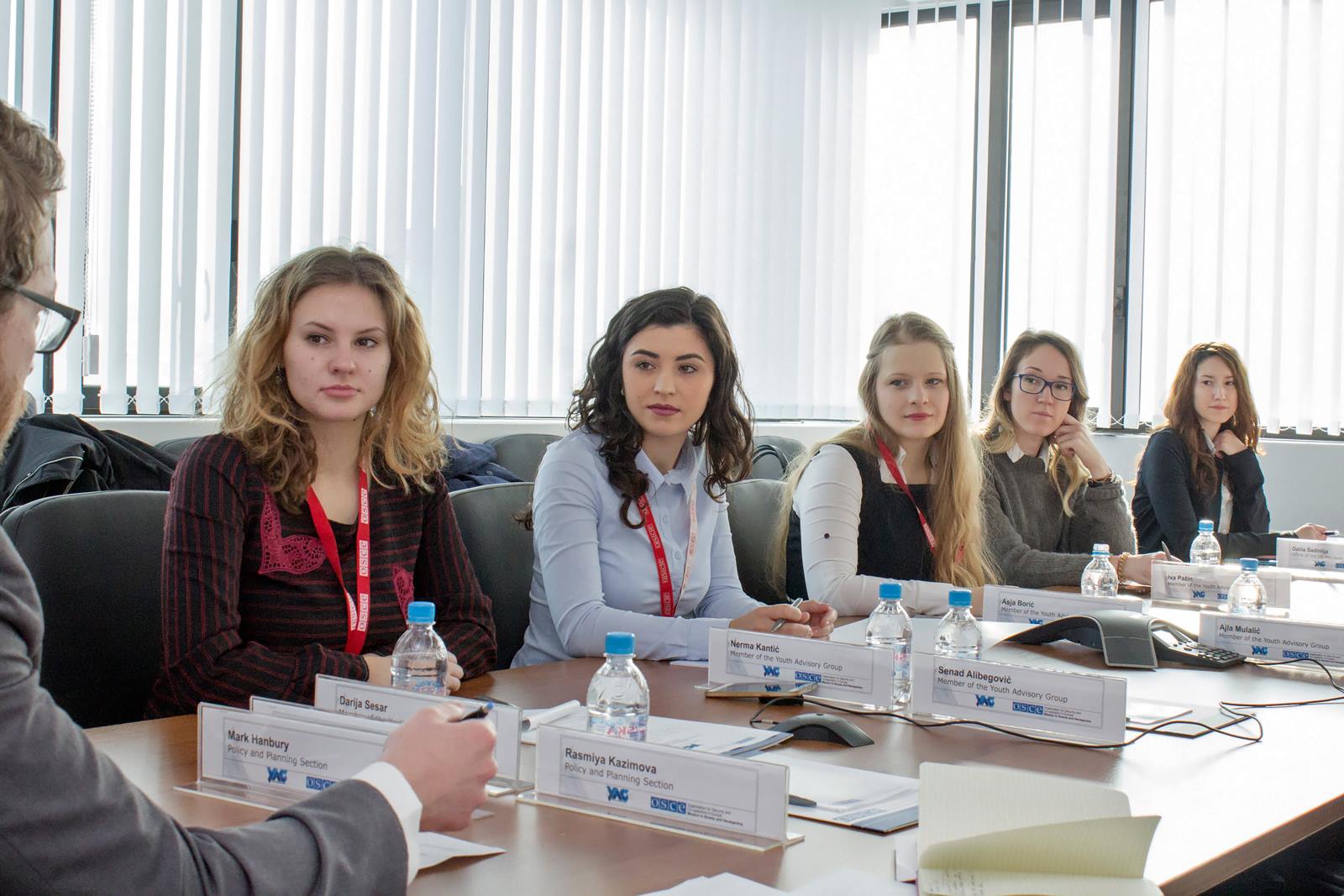
Bosnia and Herzegovina’s youth population has the potential and ability to work for peace and security in innovative ways. Sadly, recognizing the country’s youth as genuine partners for peace often falls short and their voices go unheard. The OSCE Mission to Bosnia and Herzegovina is working diligently in their efforts to spark a change.
Bosnia and Herzegovina’s youth population has the potential and ability to work for peace and security in innovative ways. Sadly, recognizing the country’s youth as genuine partners for peace often falls short and their voices go unheard. The OSCE Mission to Bosnia and Herzegovina is working diligently in the efforts to spark a change.
Living as a young person in Bosnia and Herzegovina (BiH) is a road paved with obstacles. While economic and social barriers make it hard to integrate into the job market, widespread corruption and nepotism contribute to a sense of injustice and disenfranchisement. The country suffers from severe brain drain and its youth show less and less interest in political participation. This significantly reduces the quality of human resources in BiH and hampers the role of youth as key partners for building peace and stability. One of the actors working hard to create a systematic change and advance meaningful youth participation is the OSCE Mission to BiH. In 2014, the Mission established something ground-breaking within OSCE executive structures: an advisory group for obtaining, formulating, and effectively integrating youth perspectives into the Mission’s work.
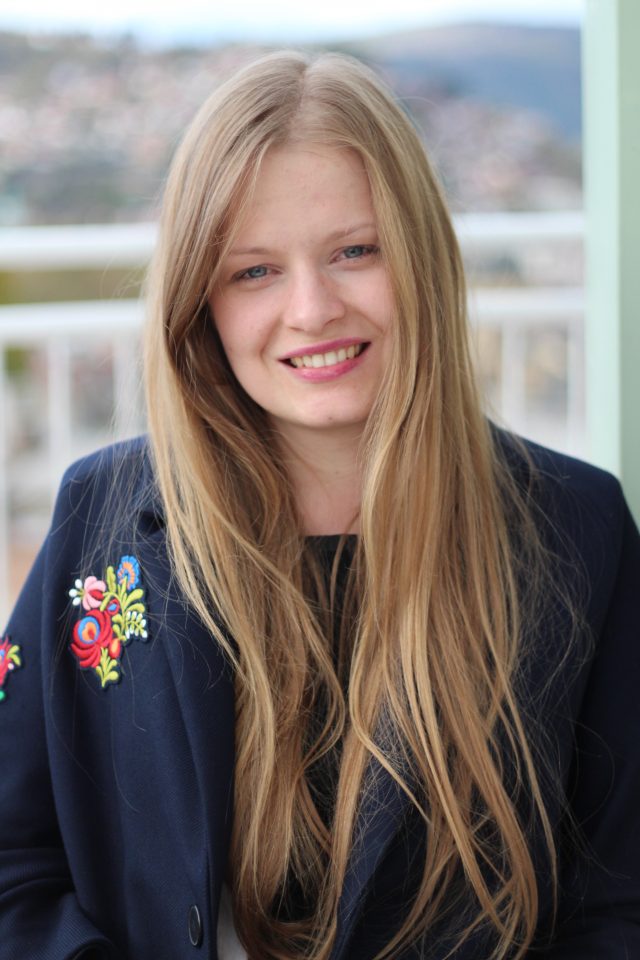
Asja Borić, current alumna of the OSCE Mission’s Youth Advisory Group (YAG), takes a sip of her coffee and explains: “Young people can build unique bridges, initiating the exchange of different experiences with their peers.” While discussing the types of contributions youth can make to consolidate peace in BiH, Borić elaborates on several notable examples of how she and her YAG colleagues have provided their youth perspectives to high-level policy-making decisions and have supported local youth initiatives in small and remote communities. An active volunteer since the age of 13, Borić is a shining example of constructive civic activism taking place within the country and happily agreed to sit down with Balkan Diskurs to discuss the work of YAG and her experiences as a young professional living in BiH.
Borić was actively engaged in the work of YAG for two consecutive years before acquiring her alumna position. “The idea that my non-governmental activism could be more relevant and effective through the group initially sparked my decision to apply for YAG,” she describes with a smile. She highlights the importance of possessing high-level support when trying to affect positive changes in the society: “In BiH, young people are often ignored by local or national officials regarding their quests for youth-related projects, but with official support from internationally reputable organizations such as the OSCE, their voices are at least heard.” Accordingly, making the voice of youth not only heard but also listened to is one of the main reasons why YAG exists.
The advisory group is the OSCE Mission’s most meaningful mechanism for engaging young people as partners. Borić further explains that YAG assists the Mission to design youth-responsive policies and activities, and provides insight on current political, social and economic issues. In 2016 and 2017, for example, YAG partnered with the Mission’s Security Co-operation Unit and was engaged as a part of a youth working group at two consecutive Annual Review Conferences on Compliance with the OSCE and UN Security Commitments of BiH. The Conferences are major forums for dialogue between the government, civil society, and the expert community in assessing the implementation of international security obligations and security-building measures of BiH. The youth participants provided invaluable contributions at the forums: in 2016, their recommendations and concrete solutions were presented by a group rapporteur, and in the following year four of the group’s recommendations were officially adopted – a truly impressive number, considering that there were twelve official recommendations in total. Clearly, enabling youth to have access to such decision-making forums is one of the core functions of YAG and it has yielded results.
Like any other social group, the youth population is sometimes divided and anything but homogenous. It is, thus, important to take into account their diversity when considering their agency and potential contributions. Borić explains that the members of YAG are selected with the aim to ensure ethnic, religious, social, geographic, and gender balance, but all are competent volunteers who have demonstrated active engagement within their respective communities. She then draws attention to the group’s diversity: “More recently, YAG has been enriched by the membership of youth representatives from marginalized groups in BiH, such as persons with disabilities, Roma youth, and LGBTQ youth.” The representation of such groups is essential considering that the country’s constitution discriminates against Jews, Roma, and other minorities, and its socially conservative society often forces sexual minorities to remain hidden in an effort to stay safe.[1] [2] “From the very beginning, we developed sensitivity and understanding towards each other’s needs. That is our biggest strength when targeting a broader youth audience.” Borić says with humility.
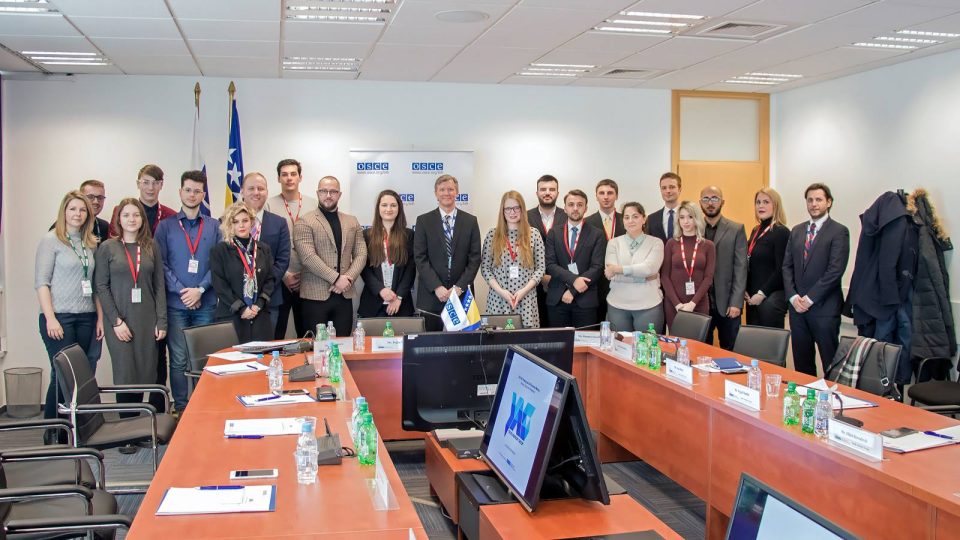
Reaching out to a wide range of youth is often easier said than done, however. Many young people live in social and political peripheries outside of the principal cities, which poses the risk of their voices being lost among those working in towns such as Sarajevo, Banja Luka, and Mostar. Borić mentions that one of the main strengths of YAG lies in the availability of Mission support from its extensive field office network. The Mission’s Head Office in Sarajevo and nine field offices across the rest of the country are uniquely positioned to engage with youth around BiH and play an integral role in supporting YAG members’ visits to smaller communities. In fact, one of Borić’s most meaningful activities as a YAG member has been the chance to participate in a number of field visits across the country. In Tuzla, for example, she met with youth organizations and young leaders from Ugljevik and Tuzla with an aim to support and promote youth leadership and civic activism across different jurisdictions.
Preventing Violent Extremism and Radicalization
As the discussion continues, the conversation shifts to the topic of preventing violent extremism. Considering the complexity of the issue at hand, Borić remarks that just telling youth to be active in their communities and pursue their professional development goals is not a solution to escaping the suffocating narratives of violent extremism that exist in various forms all around them. “We must be realistic and emphasize that the majority of BiH youth live on the social margins, unable to access opportunities for personal and professional development. They are easy targets for violent extremism and radicalization, which can sometimes provide them with a sense of belonging, purpose, and even financial security and prosperity of some kind,” she comments. To avert feelings of disenfranchisement and marginalization, working with youth, equipping them with the proper tools and the confidence to navigate in this society, and giving a voice to young people who perhaps might not be able to participate in shaping the society is key.
Preventing and countering violent extremism is a central part of the OSCE Mission’s multi-dimensional approach and is driven by the need to provide youth with a stronger sense of belonging, positive purpose, and ownership. To illustrate, every year the Mission brings young people closer to BiH’s security institutions and policies through its Youth and Security Summer Schools. YAG also works with the issue and Borić explains that the group is divided accordingly into two subgroups: one that focuses on Gender Equality, and one on Countering Violent Extremism. She provides a specific example of YAG engagement related to this topic: “My YAG colleague was invited to represent YAG and BiH youth at the OSCE Expert Working Session on P/CVERLT and Southeastern Europe, where he was directly involved in the development of one of the OSCE guidelines on the role of civil society in preventing and countering violent extremism that leads to terrorism.” Borić points out that not only is this a suited example of youth ownership, but also an example of OSCE-initiated youth engagement leading to the incorporation of youth perspectives into OSCE policy documents.
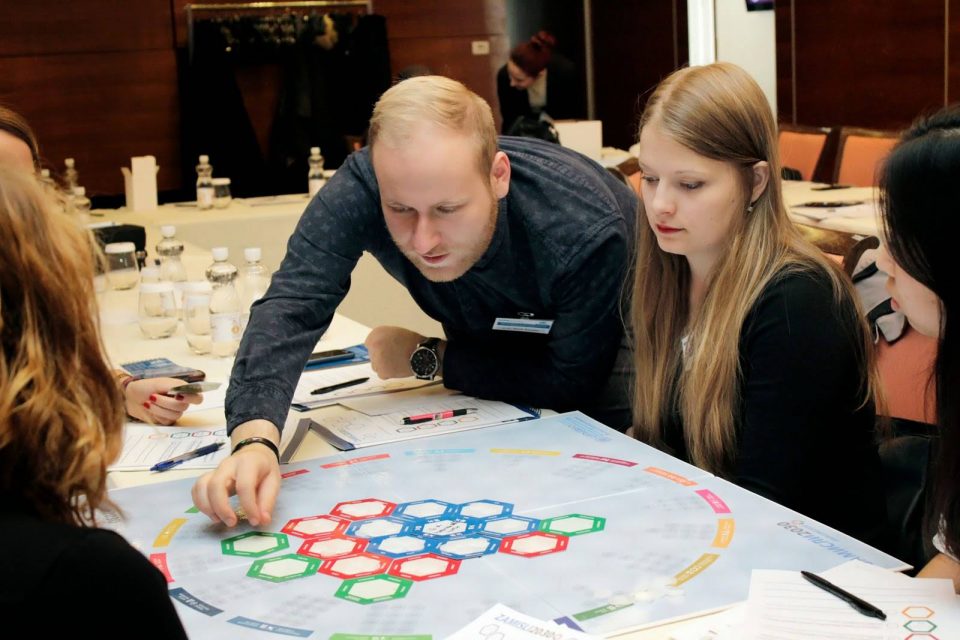
Combatting Segregation
When discussing the most pressing issues affecting the lives of young people in BiH, the segregated schooling system and discriminatory education policies are at the top of the list and their role in preventing the country from moving toward a functional and stabilized society is undeniable. In the country’s Federation of Bosnia and Herzegovina entity, in particular, the “two schools under one roof” phenomenon keeps the younger generations physically and emotionally divided, impeding true reconciliation. Various international and national actors have called for the elimination of segregation in education over the years but achieving reforms has proved problematic. The country’s ethno-nationalist political parties maintain ethnic segregation as it solidifies divisions, creates mistrust among the country’s citizens, and leads to homogenous voting blocks. Simultaneously, BiH’s complex governing structure and fragmented education system make addressing the issue of segregation even more difficult.[3]
The OSCE Mission to BiH is making a conscious effort to address the issue by endorsing more work with youth, their parents, and non-governmental partners in an effort to establish community-level pressure on decision-makers. Borić mentions a YAG youth mainstreaming project proposal she personally drafted for the Mission to tackle some of the problems that result from segregation in education. The proposal focuses on encouraging children from different ethnic and social backgrounds to interact with each other through joint excursions and activities. This would foster respect for diversity and create friendships. It cannot be denied that Borić’s proposal has great potential and, in fact, its potential success has already been tested in her childhood.
Borić shares a personal story from her past, when the artificial divisions and invisible borders in her school were torn down. During her time in the First Primary School of Konjic, she and her fellow primary school graduates were sent on an excursion together but were assigned to two different buses according to their ethnicity. However, after spending five days together, the group returned to Konjic together in one bus, leaving the other to drive back to Konjic completely empty: “For eight years, we have been kept separated and taught to hate one another, yet we needed only five days together to overcome our negative opinions and prejudices about one another.” After the students returned to Konjic, they successfully lobbied their teachers and school board members to initiate the organization of a joint prom night, which would bring the personnel from all classes together at the same table. The story clearly depicts the power of young people taking a stance and not staying silent on unfair decisions. Moreover, it echoes why mechanisms such as YAG are greatly needed.
The Future of YAG
The OSCE Mission’s Youth Advisory Group not only reflects and strengthens the voices of BiH’s youth, but also helps young people to perceive themselves as the leaders of today and the civic and democratic leaders of tomorrow. In other words, the YAG model emphasizes that youth are not problems to be solved but are instead essential partners for peace and development. Borić warmly talks about her time as a YAG member and explains that it has provided her with unique insight into the OSCE’s platform for political dialogue and joint action to improve the lives of individuals and communities. In addition, it has helped her to further pursue her educational and professional development goals as well as to gain lifelong friendships and valuable memories. “I am looking forward to the days when my fellow YAG colleagues are successful experts in leadership positions,” she says with optimism.
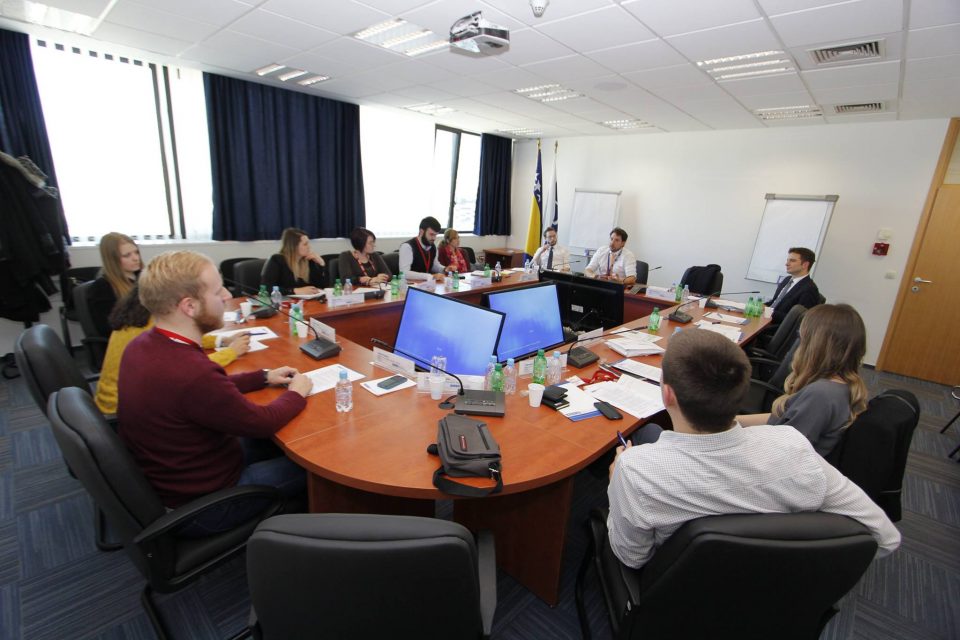
Becoming a YAG alumna has enabled Borić to thoroughly understand the added value of the alumni network. As its membership grows, the network serves as a source for constructive peer support, both for the active members themselves and for BiH youth in general. Without a doubt, this young professional deserves her spot as an alumna – her YAG generation managed to successfully establish an internationally-recognized foundation for the group’s further development and greater effectiveness as a youth mainstreaming, outreach, and policy mechanism. Their work in promoting the importance of youth participation within other OSCE executive structures has already yielded promising results as the OSCE Presence in Albania initiated a replication of the YAG model earlier this year.
When discussing her hopes for the future of YAG, Borić says that she expects the new generation of members to continue to refine an activities-based approach involving more young people across BiH and different stakeholders in the OSCE decision-making process. “When it comes to political and civic participation of youth in BiH, I expect increased involvement, co-operation, and exchange through the newly-established inter-governmental Regional Youth Cooperation Office (RYCO). I assure you that RYCO will enable a more supportive social, political, and legislative environment where young people can enjoy access to one another across the Western Balkans in the coming years,” Borić concludes. Indeed, young people from different countries can play an exemplary role when it comes to furthering the reconciliation process in the region. They have unique and innovative capabilities to co-operate and create something together, focusing on things that unite rather than separate them.
As the conversation draws to a close, it becomes clear that the OSCE Mission’s Youth Advisory Group is a bright example of recognizing young people’s potential to work for peace and stability in BiH. It helps youth to reclaim their rightful role as full members and shapers of society as well as enables talented young professionals such as Asja Borić to strengthen their expertise and contribute to the continued development of the country. When one considers how many young people are leaving BiH each year in search of better living conditions and employment as a result of their exclusion from meaningful civic and political participation, mechanisms such as YAG become that much more important. Let us face it, without the involvement of its young people, BiH cannot build a lasting peace based on an inclusive political culture and democratically accountable institutions. The OSCE Mission to BiH takes its youth-related work seriously and it is time for BiH decision-makers, officials, and institutions to do the same.
[1] Human Rights Watch (2014), Bosnia and Herzegovina: Political Discrimination Back in Spotlight, available <https://www.hrw.org/news/2014/06/24/bosnia-and-herzegovina-political-discrimination-back-spotlight>
[2] Balkan Insight (2017)), Bosnian LGBTs Remain in Closet to Stay Safe, available <http://www.balkaninsight.com/en/article/bosnian-lgbts-remain-in-closet-to-stay-safe-10-04-2017>
[3] Hadžiristić, Tea (2017), Two schools under one roof: a lesson in ethnic un-mixing from Bosnia’s segregated school system, available <https://www.opendemocracy.net/wfd/can-europe-make-it/tea-hadziristic/two-schools-under-one-roof-lesson-in-ethnic-unmixing-from-bosnia->






